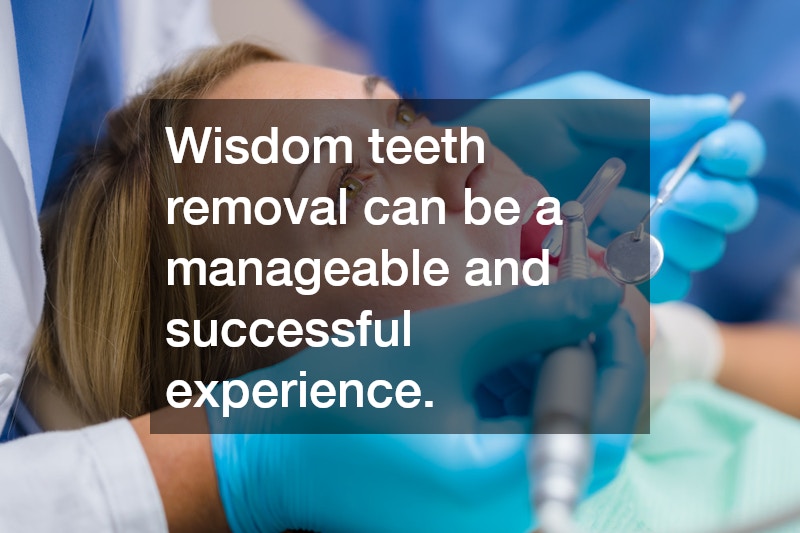Wisdom teeth removal is a common dental procedure that many people undergo in their late teens or early twenties. While the thought of oral surgery may be daunting, proper preparation can significantly ease the process and improve recovery. In this article, we will explore various steps and considerations to help you prepare effectively for your wisdom teeth removal, ensuring a smoother experience and better healing.
Preparation involves both physical and mental readiness, as well as practical arrangements. Understanding what to expect during and after the procedure can lead to less anxiety and more efficient recovery. This comprehensive guide will cover essential steps to take before your surgery, important considerations for the day of the procedure, and advice for the recovery period.
Before the Surgery: Preparing Ahead of Time
The first step in preparing for wisdom teeth removal is scheduling a consultation with your dentist or oral surgeon. During this appointment, you’ll discuss your medical history, any medications you’re taking, and the expectations for the surgery. It’s crucial to ask questions about the procedure, recovery time, and any potential complications. This consultation will also be a perfect opportunity to address any concerns you may have and to receive personalized advice. Understanding all aspects of the surgery will set you at ease and help you feel more in control.
Once you’ve scheduled your surgery, planning your meals for the recovery period is essential. After wisdom teeth removal, your diet will require soft, easy-to-consume foods like yogurt, smoothies, or mashed potatoes. Preparing these in advance will ensure you have nutritious options readily available when returning home. Additionally, consider stocking up on ice packs to help reduce swelling and pain post-surgery. Preparing these elements beforehand can significantly influence your comfort and recovery speed.
The Day of the Surgery: Key Considerations
On the day of your wisdom teeth removal, it’s important to follow the pre-operative instructions provided by your healthcare provider. Typically, this will include refraining from eating or drinking for several hours before the procedure. Abstaining from food and drink helps prevent complications with anesthesia, which is crucial for your health and safety. Prioritize wearing comfortable and loose-fitting clothing to the appointment to ensure ease of movement and to stay relaxed. Gathering your insurance information and identification in advance will streamline the check-in process as well.
Manage your expectations about timing, as the duration of the procedure and the recovery room wait can vary. Arrive slightly early to provide ample time for administrative tasks and to accommodate unexpected delays. Once checked in, use this time to practice relaxation techniques, such as deep breathing, to lower stress levels. Being mentally prepared for the surgery can help you stay calm and composed throughout the experience. Trusting in your healthcare provider’s expertise and the preparation you’ve done can provide incredible reassurance.
Post-surgery, you may feel groggy from anesthesia, requiring extra caution moving around and taking medications. Your oral surgeon will likely provide aftercare instructions addressing wound care, pain management, and dietary restrictions. It’s paramount to adhere closely to these guidelines to foster optimal healing and prevent complications. Avoid handling heavy machinery or engaging in strenuous activities during the first few days post-surgery. Setting realistic expectations and prioritizing rest will facilitate a smoother, more comfortable recovery process.
Post-Surgery: Recovery and Care Tips
The immediate recovery period after wisdom teeth removal involves managing pain, swelling, and bleeding. Use ice packs intermittently for the first 24 hours to minimize swelling and discomfort. Follow prescribed pain medication regimens diligently, based on your oral surgeon’s recommendations. Moreover, rest and avoid unnecessary physical activity to allow your body to heal effectively. By taking gradual steps and monitoring your symptoms, you’ll contribute to a more efficient recovery process.
Maintaining proper oral hygiene without disrupting the healing sites is essential. Gently rinse your mouth with warm salt water several times a day, beginning 24 hours after surgery. Avoid brushing directly over the extraction sites, but maintain general oral cleanliness to prevent infection. Be mindful of any signs of complications, such as prolonged bleeding or excessive pain, and report them to your dentist promptly. A balanced focus on cleanliness and cautiousness during this delicate period will promote healthy healing.
Remember, with the right actions and a supportive environment, wisdom teeth removal can be a manageable and successful experience. Embrace the process with confidence, knowing that you have equipped yourself with the knowledge and resources for optimal care. With these steps, you’ll be well on your way to a swift and complete recovery.
.



